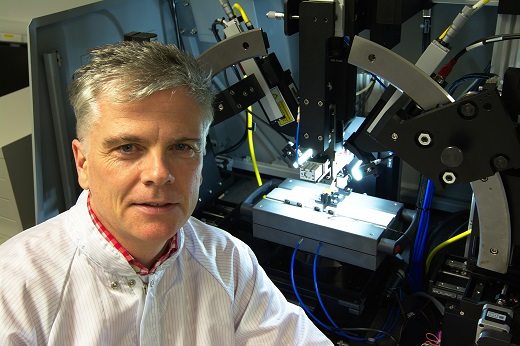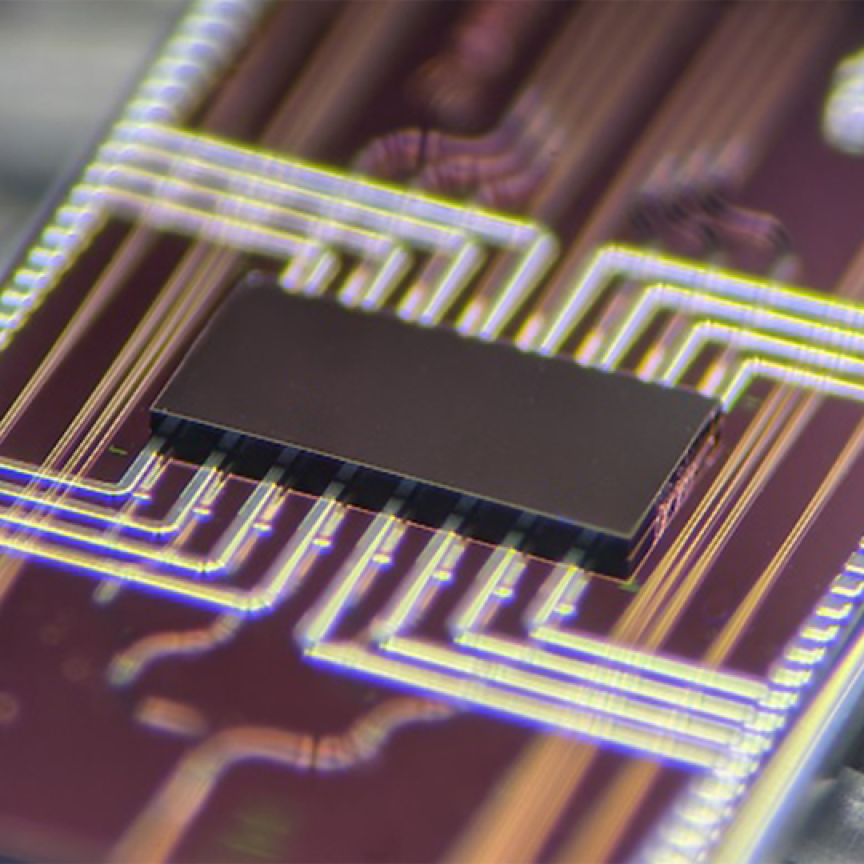The European Union is investing €15.5 million into PIXAPP, a consortium that will establish the world’s first open access photonic integrated circuit (PIC) assembly and packaging pilot line. The announcement was made to coincide with the Photonics21 annual general meeting, currently underway in Brussels.
The investment is designed to provide Europe with a state-of-the-art infrastructure that will support the industrial development and manufacture of PICs.

Prof. Peter O’Brien, PIXAPP Pilot Line director and head of Photonics Packaging Research at Tyndall National Institute
PIXAPP will combine a team of Europe’s leading industrial and research organisations to provide Europe’s SMEs with a one-stop-shop, enabling them to exploit the breakthrough advantages of PIC technologies. The consortium will provide SMEs with an easy access route to take R&D results from lab to market, giving them a competitive advantage over global competition.
Speaking from the Photonics21 event, Professor Peter O’Brien, PIXAPP pilot line director and head of Photonics Packaging Research at Tyndall National Institute in Ireland, said: ‘The consortium involved in PIXAPP, led by Tyndall, has an unmatched record of excellence in delivering many world firsts in PICs. We will establish best in class PIC packaging technologies that are cost-effective and scalable to high volume manufacture.’
The photonics market is expected to be worth more than €615 billion by 2020, and with Europe’s share of the production technology market currently at 55 per cent, the European Union, in partnership with the industry group Photonics21, has identified photonics as a key enabling technology critical for the future economic development of Europe.
The PIXAPP technologies will be offered through a single access point called the Pilot Line Gateway, located at Tyndall National Institute. The institute also plans to train and educate the photonics workforce of the future by creating a laboratory-based training programme.
Partners in the UK, Germany, France, Belgium, Netherlands, Finland, Italy and Czech Republic will each bring their own particular expertise to PIXAPP to provide SMEs with an infrastructure that will help them exploit the breakthrough advantages of PIC technologies.
Jose Pozo, director of the European Photonics Industry Consortium (EPIC), commented: ‘In the past, it has been very expensive to manufacture high volumes of PICs, and more expensive and challenging again to package them. This is creating a bottleneck for production, which is impacting the potential for growth in the photonics industry. I am confident that Tyndall National Institute’s leadership will deliver market success for Europe and drive our competitiveness across the communications, medical, automotive, energy, safety and defence sectors globally.’

